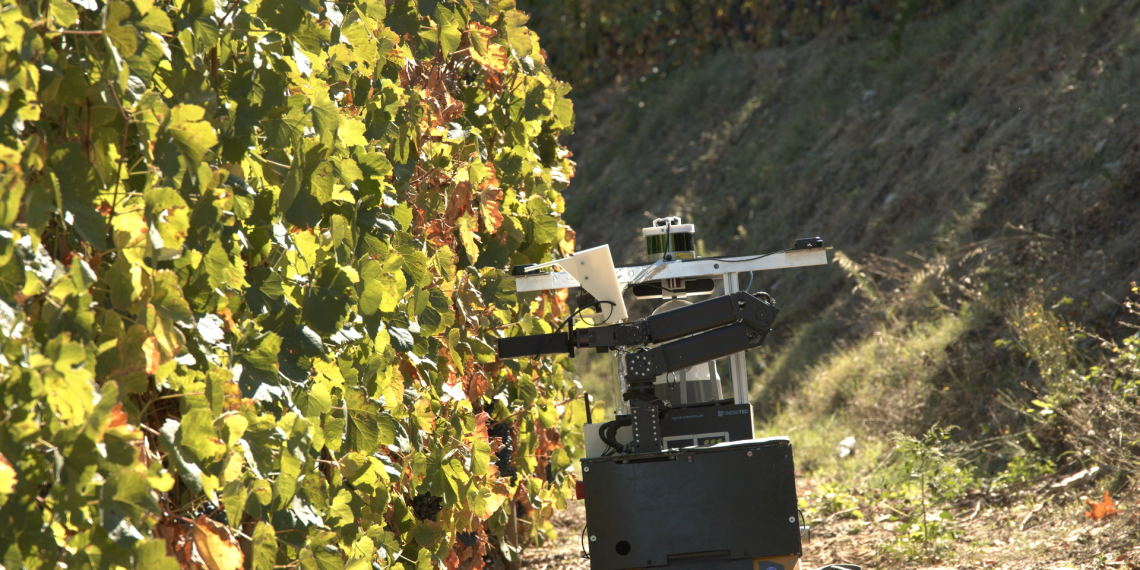Researchers from the Centre for Applied Photonics (CAP) and the Centre for Robotics in Industry and Intelligent System (CRIIS) developed a mobile platform dedicated to the metabolic monitoring in precision viticulture. The solution integrates advanced sensors using light to measure the organic changes that occur in the plant, in order to ensure the harvest’s high quality. This is the first technology of its kind in the world, and is being tested in the Douro region, at Quinta do Seixo and Quinta dos Aciprestes.
This automatic spectroscopy system is integrated into a robotic platform that runs autonomously through the vineyard, collecting metabolic information from the plants’ physiology (metabolic state of the plant and the fruits’ ripening). Spectroscopy techniques generate georeferenced images of grapevine metabolism, grape composition, and soils; this data is then correlated and interpreted by a self-learning artificial intelligence system.
“We are able to monitor the plant’s metabolism throughout the year, particularly during the harvest, to understand what changes can be made in terms of soil and manipulation of the plant, in order to achieve the desired quality”, said Rui Martins, head of the project and researcher at CAP.
“Plant metabolism is an important factor to consider in the management and control of precision viticulture, in this case to ensure the quality of Port wines. Grape quality is directly related to the physiology of the vineyard, and closely associated with the complexity of the interaction between soil, water, and climate. Thanks to this technology, we can obtain a detailed analysis of the composition of leaves and fruits – through which we can observe data on nutrients and water absorption, photosynthesis cycle and development of grape tissues in terms of nitrogen absorption, organic acids, pigments, sugars, tannins and phenolics”, said Ana Morais, technical manager at ADVID – Vine and Wine Cluster.
Precision viticulture aims to maximise the efficiency and quality of production, while contributing to environmental sustainability. There are several existing technologies, but this system represents a paradigm shift in terms of advanced tools for precision agriculture.
“As far as we know, this is the first time that the plant’s metabolism has been studied ‘in-vivo’ and ‘in-situ’. This work prepared the ground for the monitoring, diagnosis, and implementation of precision agriculture strategies at the molecular and cellular level. We believe it will change the paradigm of precision agriculture – currently focused on data-driven methods (data analysis) – to causal methods, based on scientific knowledge of the entire biology of the plant and its interaction with the ecosystem”, added researcher Rui Martins.
The system was developed during the project “METBOTS – Metabolomic robots with self-learning artificial intelligence for precision agriculture”, a partnership between INESC TEC and ADVID, funded by the Foundation for Science and Technology (Ref. PTDC/EEI-ROB/31124/2017 and FEDER/COMPETE 2020 POCI-01-0145-FEDER-031124).
The INESC TEC researcher mentioned in this news piece is associated with INESC TEC.



 News, current topics, curiosities and so much more about INESC TEC and its community!
News, current topics, curiosities and so much more about INESC TEC and its community!